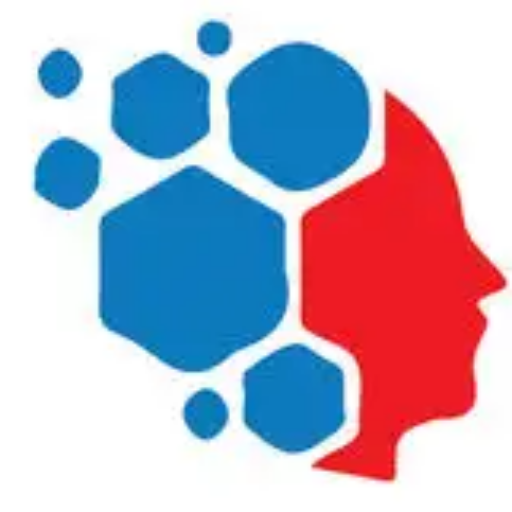The transformation of how AI agents are changing how everyone works is happening faster than most people realize. This article provides a comprehensive guide on understanding how AI agents are revolutionizing the workplace, what changes to expect, and how this transformation will reshape productivity, collaboration, and career paths across industries. It is a complement to understanding the future of software automation and workplace technology.
Prerequisite
A basic understanding of workplace productivity, technology trends, or software development
The Workplace Revolution: AI Agents Transforming How We Work
AI Agents Are About to Change How Everyone Works — Here’s What Comes Next
| TABLE OF CONTENTS |
|---|
| 1. What Comes Next: The AI Agent Revolution 2. The Current State: Where We Are Today 3. Key Areas Where AI Agents Are Transforming Work 4. The Productivity Revolution: What AI Agents Enable 5. How Job Roles Are Evolving 6. The Future of Workplace Collaboration 7. Skills You’ll Need in the AI Agent Era 8. Challenges and Opportunities Ahead 9. How to Prepare for What Comes Next |
What Comes Next: The AI Agent Revolution
We’re standing at the threshold of a fundamental shift in how work gets done. AI agents — intelligent systems that can understand context, make decisions, and complete tasks autonomously — are no longer science fiction. They’re here, and they’re about to transform every aspect of how we work, from mundane daily tasks to complex strategic decisions.
Unlike previous waves of automation that replaced specific manual tasks, AI agents can handle entire workflows, adapt to changing circumstances, and collaborate with humans in entirely new ways. This isn’t just about doing things faster — it’s about fundamentally reimagining what work means and what humans contribute.
Why This Time Is Different
Previous automation technologies were limited and brittle:
- Industrial automation could perform repetitive physical tasks but required extensive setup and couldn’t adapt
- Software automation could execute scripts but broke when conditions changed
- Robotic process automation (RPA) mimicked human actions but couldn’t handle exceptions
AI agents are different because they combine:
- Natural language understanding to interpret instructions and context
- Adaptive decision-making that responds to new situations
- Learning capabilities that improve over time
- Seamless integration with existing tools and workflows
- Collaborative intelligence that augments human capabilities
The Current State: Where We Are Today
Today, most knowledge workers spend a significant portion of their time on tasks that don’t require their unique expertise:
| Task Category | Time Spent | AI Agent Impact |
|---|---|---|
| Email and Communication | 28% | High – Can draft, prioritize, and respond |
| Data Entry and Processing | 19% | Very High – Can automate completely |
| Information Gathering | 14% | High – Can research and synthesize |
| Meeting Preparation | 12% | Medium – Can organize and summarize |
| Administrative Tasks | 11% | Very High – Can handle autonomously |
| Strategic Thinking | 16% | Low – Augments human insight |
The reality is that AI agents are already beginning to handle many of these routine tasks. What comes next is the expansion of AI agent capabilities into more complex, nuanced areas that currently require human judgment and creativity.
Key Areas Where AI Agents Are Transforming Work
1. Knowledge Work and Research
AI agents can now gather information from multiple sources, synthesize findings, and present actionable insights. Instead of spending hours searching through documents, databases, and websites, workers can delegate research to AI agents that understand context and can provide comprehensive, cited summaries.
Example: A marketing professional needs competitive analysis. An AI agent can:
- Research competitor strategies across multiple channels
- Analyze pricing, messaging, and positioning
- Synthesize findings into strategic recommendations
- Update the analysis as new information becomes available
2. Content Creation and Communication
From drafting emails to creating presentations, AI agents are becoming capable writing partners that understand tone, audience, and objectives. They can draft initial versions, revise based on feedback, and adapt content for different channels and audiences.
3. Decision Support and Analysis
AI agents excel at processing large amounts of data to identify patterns, trends, and anomalies. They can provide real-time analysis that informs decision-making without requiring humans to manually crunch numbers or create reports.
4. Workflow Automation
Rather than automating individual tasks, AI agents can manage entire workflows:
- Coordinating between multiple systems and applications
- Handling exceptions and routing decisions
- Escalating complex issues to humans when needed
- Learning from human interventions to improve over time
5. Customer and Client Interaction
Customer service, sales, and support functions are being transformed by AI agents that can:
- Handle complex inquiries with understanding and context
- Personalize interactions based on customer history and preferences
- Escalate appropriately when human judgment is needed
- Learn from successful resolutions to improve future interactions
The Productivity Revolution: What AI Agents Enable
The most immediate impact of AI agents is dramatic productivity gains. But this isn’t just about doing more work faster — it’s about enabling entirely new ways of working:
24/7 Autonomous Operation
Unlike human workers constrained by time zones, working hours, and capacity limits, AI agents can work continuously. Tasks don’t need to wait for business hours, and projects can progress even when team members are unavailable.
Parallel Processing at Scale
AI agents can handle multiple tasks simultaneously without degradation in quality. A single AI agent can manage dozens of workflows, respond to hundreds of queries, and process thousands of data points concurrently.
Instant Access to Expertise
Rather than waiting for experts to be available, AI agents can provide immediate access to specialized knowledge and capabilities. This democratizes expertise and reduces bottlenecks in knowledge-intensive work.
Error Reduction and Quality Consistency
By following best practices consistently and learning from mistakes, AI agents can reduce errors and maintain high quality standards across all work, regardless of volume or complexity.
How Job Roles Are Evolving
As AI agents take over routine tasks, job roles are shifting toward higher-value activities:
| Traditional Role | Evolving Focus | AI Agent Partnership |
|---|---|---|
| Data Analyst | Strategic insights and recommendations | Agent handles data processing; human provides context and interpretation |
| Customer Service | Complex problem-solving and relationship building | Agent handles routine inquiries; human manages escalations |
| Content Creator | Creative direction and strategic messaging | Agent drafts content; human provides vision and refinement |
| Project Manager | Strategic planning and stakeholder management | Agent handles coordination and tracking; human focuses on strategy |
| Software Developer | Architecture and complex problem-solving | Agent writes code; human designs systems and solves novel challenges |
The pattern is clear: AI agents are becoming powerful collaborators that handle execution, while humans focus on strategy, creativity, judgment, and relationships.
The Future of Workplace Collaboration
Workplace collaboration is evolving from human-to-human interaction to human-AI-human collaboration. AI agents act as:
- Intelligent assistants that understand context and preferences
- Collaboration facilitators that bridge time zones and communication styles
- Knowledge brokers that connect people with relevant information and expertise
- Workflow coordinators that ensure tasks flow smoothly between team members
New Collaboration Patterns
Teams are already starting to include AI agents as active participants in workflows. An AI agent might draft a proposal, a human reviews and refines it, another AI agent checks it against company guidelines, and yet another schedules stakeholder reviews — all seamlessly coordinated.
Skills You’ll Need in the AI Agent Era
As AI agents transform work, the most valuable skills are shifting:
1. AI Agent Orchestration
The ability to effectively deploy, configure, and manage AI agents is becoming essential. This includes:
- Understanding what tasks are suitable for AI agents
- Designing workflows that leverage AI capabilities
- Providing clear instructions and feedback to improve performance
- Monitoring and optimizing AI agent effectiveness
2. Strategic Thinking and Judgment
As AI agents handle more execution, human value comes from:
- Defining objectives and priorities
- Making complex judgments with incomplete information
- Balancing competing interests and trade-offs
- Anticipating long-term implications
3. Creative Problem-Solving
While AI agents excel at pattern recognition and optimization, humans remain superior at creative problem-solving, imagining novel approaches, and connecting disparate ideas.
4. Emotional Intelligence and Relationship Building
Building trust, understanding motivations, and navigating complex interpersonal dynamics remain distinctly human capabilities that become more valuable as AI agents handle routine interactions.
5. Continuous Learning and Adaptation
The pace of change requires the ability to quickly learn new tools, adapt workflows, and evolve approaches as AI agent capabilities advance.
Challenges and Opportunities Ahead
The transformation brought by AI agents comes with both challenges and opportunities:
Challenges
- Job displacement concerns: Some roles will evolve dramatically or become obsolete
- Skill gaps: Workers need new skills to work effectively with AI agents
- Change management: Organizations must adapt workflows and cultures
- Ethical considerations: Ensuring AI agents are used responsibly and fairly
- Dependency risks: Over-reliance on AI agents could reduce human capabilities
Opportunities
- Higher productivity: Focusing human talent on high-value work
- Accessibility: Making sophisticated capabilities available to more people
- Innovation acceleration: Faster iteration and experimentation
- Work-life balance: Reducing routine workload to enable better balance
- New career paths: Emerging roles in AI agent management and development
How to Prepare for What Comes Next
The transformation is already underway. Here’s how to prepare:
1. Start Experimenting Now
Don’t wait for AI agents to be perfect or fully integrated. Start experimenting with available tools to understand their capabilities and limitations.
2. Identify Automation Opportunities
Audit your current work to identify tasks that could be handled by AI agents. Look for repetitive, rule-based activities that consume significant time but don’t require unique human judgment.
3. Develop Complementary Skills
Focus on developing skills that complement rather than compete with AI agents: strategic thinking, creativity, emotional intelligence, and relationship building.
4. Embrace Continuous Learning
The AI landscape is evolving rapidly. Commit to staying current with new tools, techniques, and best practices for working with AI agents.
5. Think Strategically About Your Role
Consider how your role might evolve and proactively position yourself to work alongside AI agents rather than be replaced by them. Focus on areas where human judgment, creativity, and relationships create value.
Conclusion: The Future Is Collaborative
The transformation is inevitable. AI agents are not coming — they’re here, and they’re becoming more capable every day. What comes next isn’t a replacement of human workers but an evolution of work itself.
The most successful workers and organizations will be those that embrace AI agents as collaborative partners, focusing human capabilities on strategic thinking, creative problem-solving, and meaningful relationships while leveraging AI for execution, analysis, and scale.
The future of work is human-AI collaboration. The question isn’t whether this will happen — it’s whether you’re prepared to thrive in this new era.


